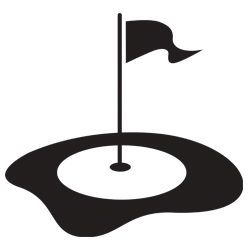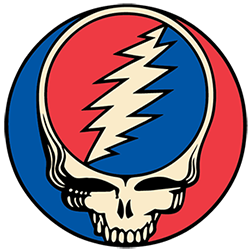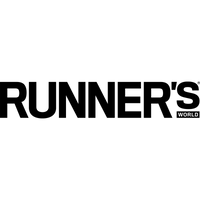
Are Blue Light Glasses Bad For Your Eyes?
Do you spend a lot of time in front of your computer? Are you constantly looking at your smartphone or tablet? These everyday devices emit a type of light that could harm your eyes. But there may be a simple solution: blue light glasses. Let’s look at what blue light blockers are, any potential issues, and at their potential benefits.
FIRST, WHAT EXACTLY IS BLUE LIGHT?
Visible to the human eye, blue light is part of the visible light spectrum. It has the highest energy and shortest wavelength of that spectrum, and blue light makes up about one-third of all visible light. Sunlight is one of the largest sources of blue light. Artificial light is the second-largest; smartphones, tablets, computer monitors, fluorescent lights, and LED lights of all kinds emit blue light. A lot of it. And human eyes are not well-equipped to block blue light, allowing almost all blue light to pass through the front of the eye to reach the retina.
Is that a bad thing? It could be. Melissa Barnett, the principal optometrist at the Eye Center at the University of California, Davis, says, "Constant exposure to blue light over time could damage retinal cells and cause vision problems such as age-related macular degeneration. It can also contribute to cataracts [and] eye cancer." Barnett adds, "This is especially true when it comes to too much screen time and screens too close to the eyes."
And Americans spend massive amounts of time in front of their screens—as much as nearly seven hours a day! According to Pew Research, about three-in-ten American adults are "almost constantly" online with smartphones and other connected devices. While 85% of Americans say they go online every day.

CAN BLUE LIGHT GLASSES HARM YOUR EYES?
No. There is no evidence to suggest that wearing blue light glasses can harm a person's eyes. Researchers at China's Wenzhou Medical University looked into just that question, evaluating the long-term effects of blue light blocking glasses in a randomized controlled trial. They separated 144 adults into three groups: those with 15% blue-blocking lenses, those with 30% blue-blocking lenses, and those with clear lenses to serve as the control group. Participants were then exposed to four different light conditions over one-month, three-month, and six-month periods.
The research team was specifically interested in seeing if blue light glasses had a negative impact on contrast perception and contrast sensitivity. Did they? No. The study found "no significant difference(s) among the three types of spectacle lenses under any light conditions." The study concluded that "wearing blue light blocking lens had no clinically significant effect on adults’ long-term contrast perception.”

THE BENEFITS: BLUE LIGHT BLOCKERS AND SLEEP
You may be wondering, “Do blue light glasses actually work?” It’s a fair question, as there is not a tremendous body of research into the benefits of blue light blocking glasses. Though the glasses have been studied in a few areas. These include the effectiveness of blue light blockers in insomnia management, jet lag, sluggishness due to shift work, and Delayed Sleep Phase Syndrome (DSPS). DSPS is when a person's sleep is delayed well beyond what is considered normal, such as when they lie awake for as long as two hours before they finally fall asleep.
Researchers at the University of Oklahoma College of Medicine looked at the efficacy of wearing blue light blocking glasses to help with sleep disorders. Their study concluded that "blue-blocking glasses improve sleep by inducing dim-light melatonin onset." How does that work? Their study found that blue light blocking glasses reduce the activation of intrinsically photosensitive retinal ganglion cells (ipRGCs). These cells directly affect circadian rhythms, which are a person's mental, physical, and behavioral changes over a 24-hour period. Perhaps the best-known circadian rhythm is the sleep-wake cycle, which is an integral part of a body's internal clock.
When circadian rhythms align correctly, a person is more likely to have consistent and restorative sleep patterns. If circadian rhythms get thrown off (say, by blue light), sleeping difficulties such as insomnia are a common result. Light is the single largest influencing factor on circadian rhythms, which is why the rhythms are inexorably tied to the day-night cycle.
The University of Oklahoma study concluded that "there was substantial evidence for blue-blocking glasses being a successful intervention for reducing sleep onset latency in patients with sleep disorders, jet lag, or variable shift work schedules." And further, "blue-blocking glasses are effective for inducing sleep, they are a viable intervention to recommend to patients with insomnia or a delayed sleep phase."
BLUE LIGHT GLASSES AND MELATONIN
A study by Quebec’s Laval University considered the ability of blue light glasses to impede bright light that suppresses melatonin production. Why is this important? Often called the "sleep hormone," melatonin is a critical component of the body's sleep-wake cycle. You may have heard of sleep supplements that contain melatonin, which is often made synthetically or derived from animals. While the efficacy of these non-human melatonin supplements is far from settled science, there is little doubt that melatonin produced by the human body helps a person go to sleep.
Light and dark play big roles. Darkness prompts the pineal gland, which is in the brain, to produce melatonin and release it into a person's bloodstream. Light, however, causes the production of melatonin to stop. It's the reason we find it so much easier to fall asleep in a dark room compared to a brightly lit one. So how do blue light glasses come in? The Laval University study concluded that "blue blockers represent an elegant means to prevent the light-induced melatonin suppression." So you might consider wearing blue light blocking glasses before bed.
BLUE LIGHT BLOCKING GLASSES FOR EYESTRAIN
A study by researchers at the City University of London and the University of Melbourne looked at the effectiveness of blue light glasses in alleviating eyestrain and discomfort when using digital devices. To do this, the research team conducted randomized controlled trials designed to gauge visual performance while wearing blue light glasses, measuring symptoms of eye fatigue, eyestrain, and changes in macular integrity. Ophthalmologists often do macular integrity assessments to gauge an eye's sensitivity and functionality.
The researchers found that study participants who wore the blue light glasses for two hours during computer tasks had less eye pain, less eye itching, and less eyestrain compared to participants who did not wear blue light glasses.
BLUE LIGHT BLOCKERS FOR COMPUTERS AND MORE
Researchers at Rensselaer Polytechnic Institute conducted a study to assess the impact of light from computer monitors on melatonin levels. And to gauge the effectiveness of blue-light goggles to combat light-induced melatonin suppression. During the study, 21 participants performed computer tasks for an hour. They performed these tasks while separated into three distinct groups: computer monitor only, with orange-tinted glasses, and with blue-light goggles.
The results? The study concluded that "melatonin concentrations after exposure to the blue-light goggle experimental condition were significantly reduced compared to the [orange-tinted glasses] and to the computer monitor only conditions." In other words, blue light glasses decidedly lessened the impact of blue light.
It's not only computer light that can inhibit the body from producing the needed amount of melatonin; room light can have almost as much of an impact. A study conducted by researchers at Harvard University considered the effect of room light in the hours before bedtime. To test their hypothesis—that room light in the late evening suppresses melatonin production—they recruited 116 people to live at a research facility for five days. During this time, the study participants were exposed to different levels of room light in the hours preceding bedtime.
The findings? The study found that "room light before bedtime suppressed melatonin, resulting in a later melatonin onset in 99.0% of individuals and shortening melatonin duration by about 90 minutes." For the participants, melanin production dropped by a considerable amount due to blue light. The study says this room light "suppressed melatonin by greater than 50% in most (85%) trials."

WILL I LOOK WEIRD IN BLUE LIGHT GLASSES?
Not at all! With clear or subtle yellow-tinted lenses, Knockaround’s blue light blocking glasses are as stylish as they are effective in combating blue light. They fit right in at the office, at home, or for any outing in which you’ll be looking at your smartphone or tablet. But you don’t have to be so discreet—we’ve got blue light glasses in a wide variety of colorways. You can even order blue light blocker lenses in our popular frame styles, such as Custom Premiums and Custom Fort Knocks. Perhaps you'll want to slip on some aviator style with blue-light-blocking Mile Highs. Functionality doesn’t have to inhibit fashion!

Are you ready to order a pair of Knockaround blue light blockers? Then take a look at our collection, where you’ll surely find some of the best blue light blocking glasses around!
Written by William McCleary for Knockaround.
























